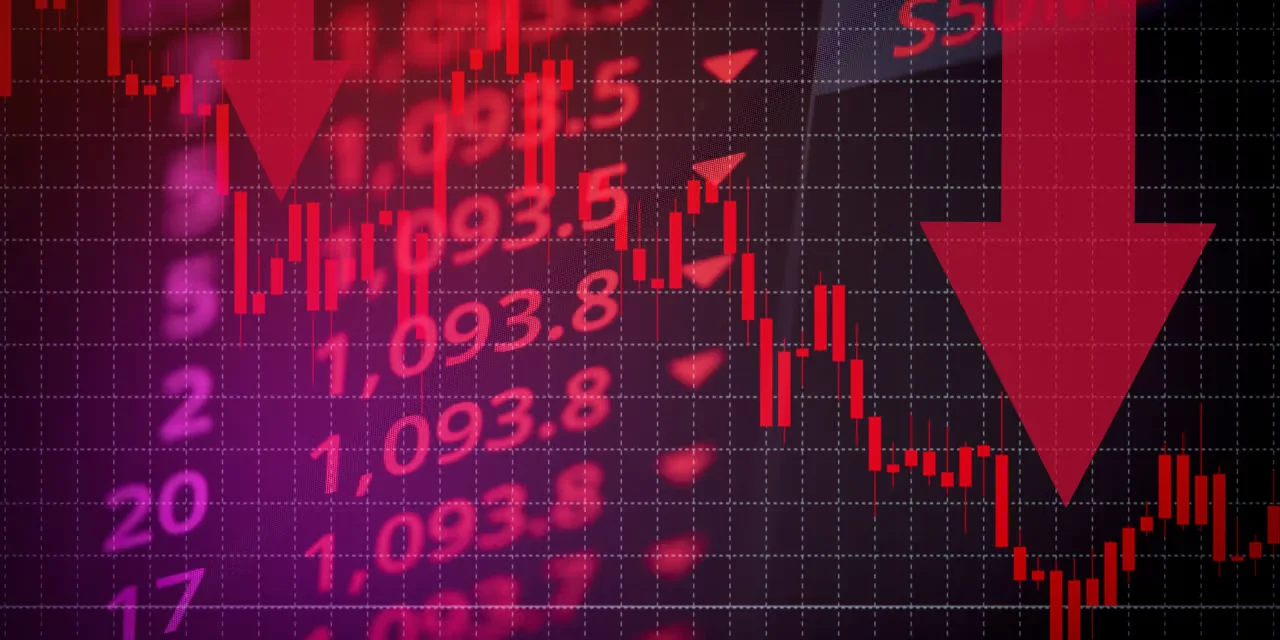Islamabad, Apr 9, 2025: Trade War Jitters sent shockwaves through the Pakistan Stock Exchange on Wednesday, causing a steep drop of over 2,600 points a reaction to intensifying global uncertainty surrounding escalating trade tensions between the U.S. and China.
This sharp fall followed a brief period of modest gains, as markets tried to stabilize after recent global sell-offs.
Trade War Jitters have deeply unsettled investor confidence, dragging the benchmark KSE-100 index down by 2,640.95 points (a 2.29% decrease), landing at 112,891.48 during early trading hours.
READ MORE:
ADB Forecasts 2.5% Growth for Pak Economy in FY25 as Reforms Take Hold
The dramatic slump came ahead of the U.S. implementing a new wave of tariffs on Chinese imports, raising total duties to an alarming 104%. This aggressive move has raised serious concerns about a full-blown trade standoff.
Especially after China’s defiant pledge to “fight to the end” in response. The tit-for-tat strategy has amplified Trade War Jitters across financial markets, triggering fears of a global slowdown and heightened volatility.
Awais Ashraf, Director of Research at AKD Securities, explained that the abrupt increase in U.S. tariffs poses a substantial threat to global economic momentum, sparking fears of recession and dragging down investor morale at the PSX.
However, he added that lower oil prices and a possible competitive edge for Pakistan under new tariff conditions might offer some buffer for the country’s external accounts.
Meanwhile, Yousuf M. Farooq, Research Head at Chase Securities, remarked that Pakistan’s stock market is largely mirroring global trends.
READ MORE:
Govt Increases Sugar Price for Tax
The dip in global oil prices has weakened oil-sector shares locally, but he believes the overall impact could be balanced by potential gains in export competitiveness.
Farooq noted that despite the 5.5% drop from recent highs, Pakistan’s market remains relatively steady, given that exports make up a smaller chunk of the GDP.
He further highlighted that remittance flows during major past crises, such as the 2008 global crash and the COVID-19 pandemic, showed remarkable consistency a positive signal for external account stability.
With India announcing an interest rate cut and inflation pressures easing domestically, Pakistan might consider similar monetary easing in the near future.
Lower oil costs may also offer fiscal leeway to increase revenues through the petroleum development levy if necessary.
Still, analysts warn that retaliatory tariffs could distort global supply chains, diminish corporate earnings, and fuel short-term market corrections.
The PSX’s losses this week follow a staggering 3,882-point fall on Monday, marked by panic selling and a temporary halt in trading.
As the April 9 tariff deadline looms, all eyes remain on how global markets and particularly vulnerable economies like Pakistan will navigate the unfolding uncertainty.









